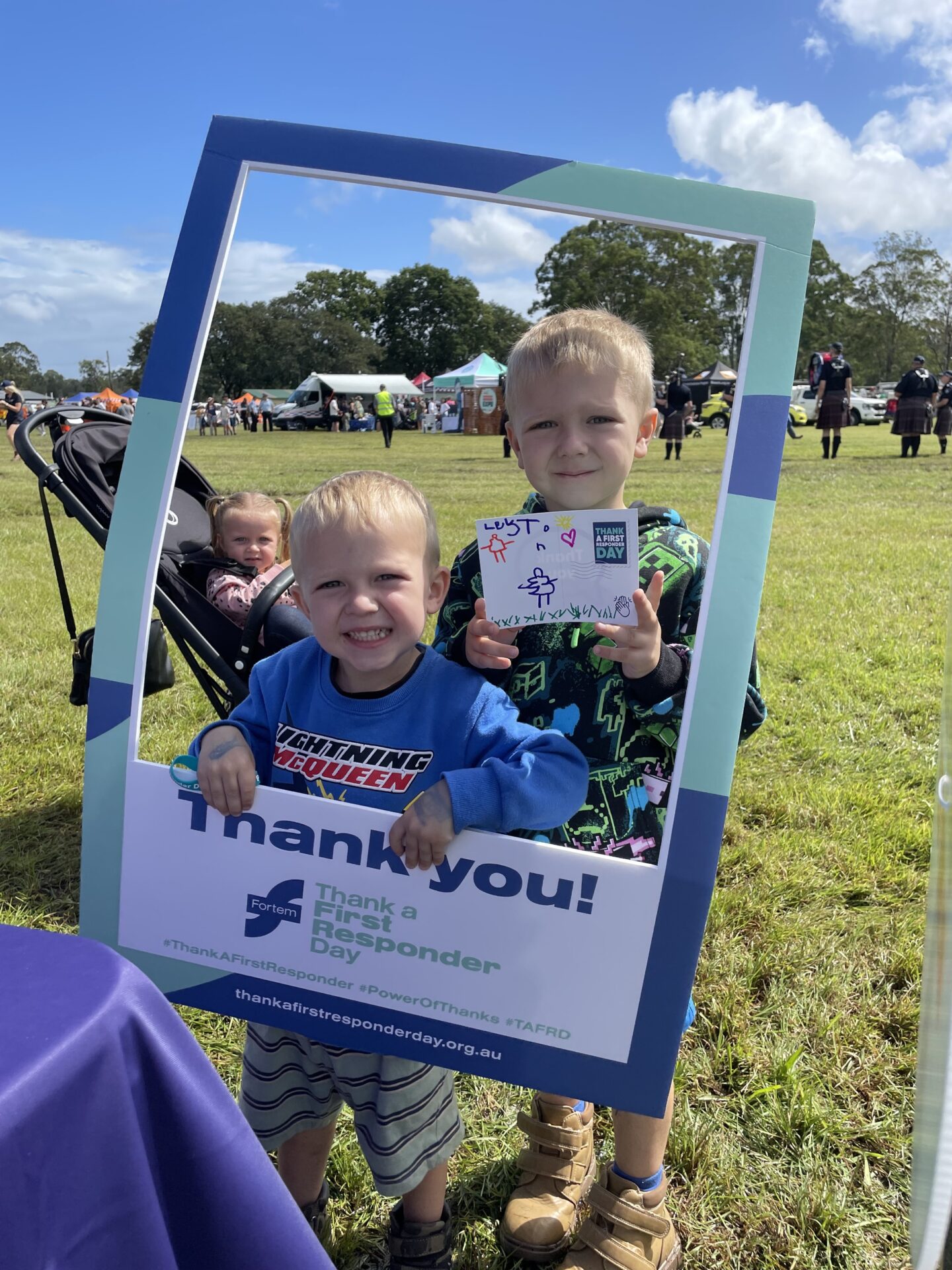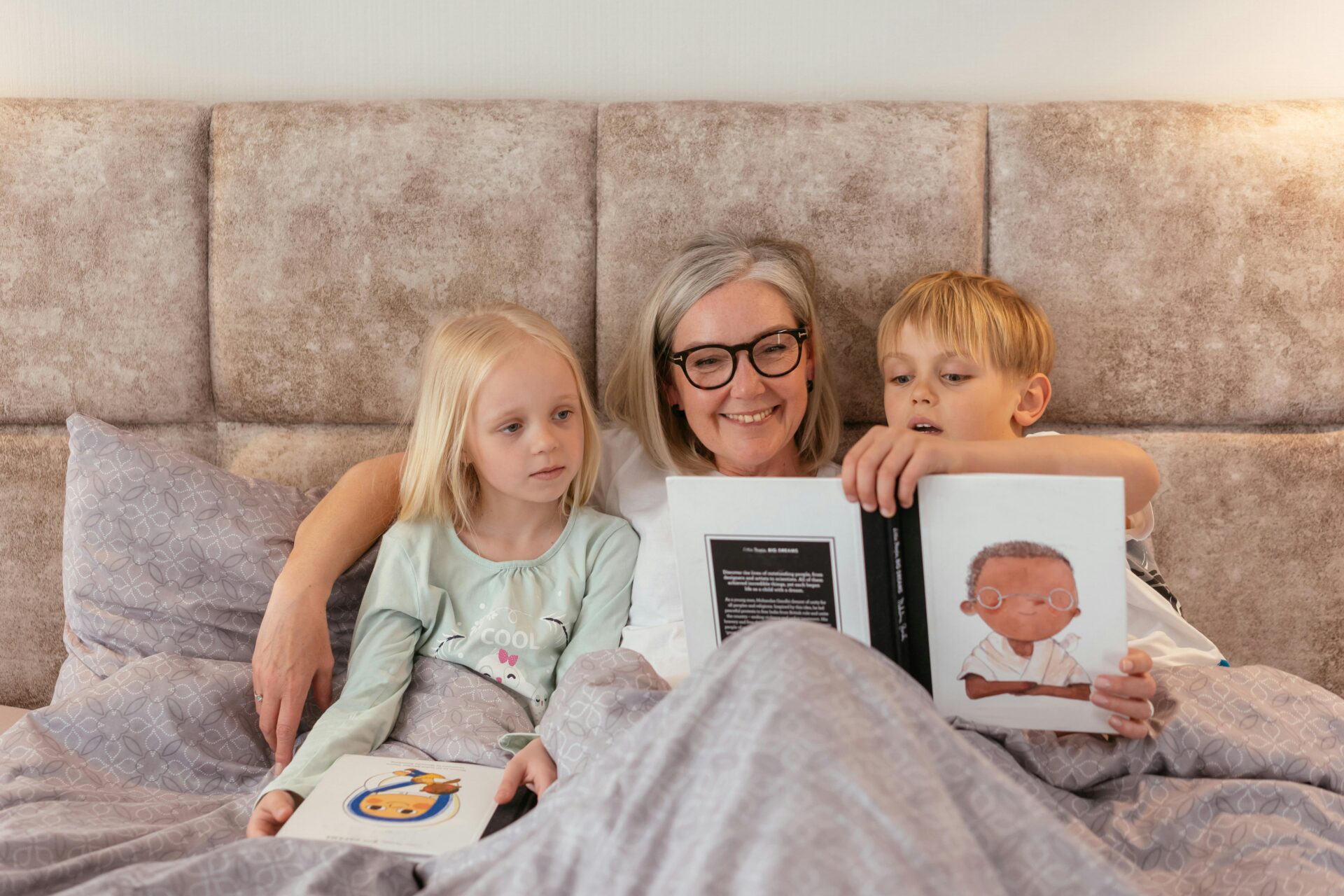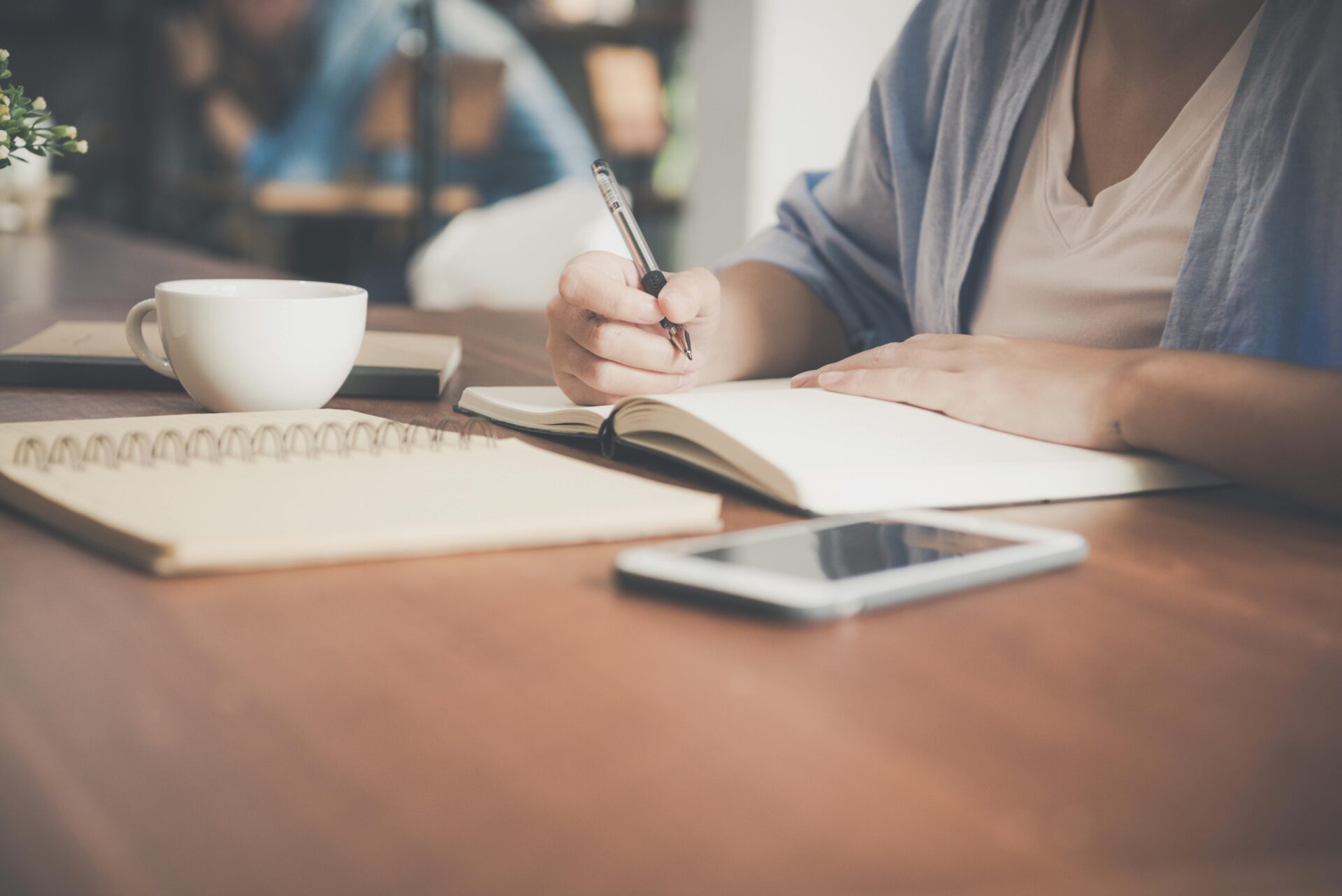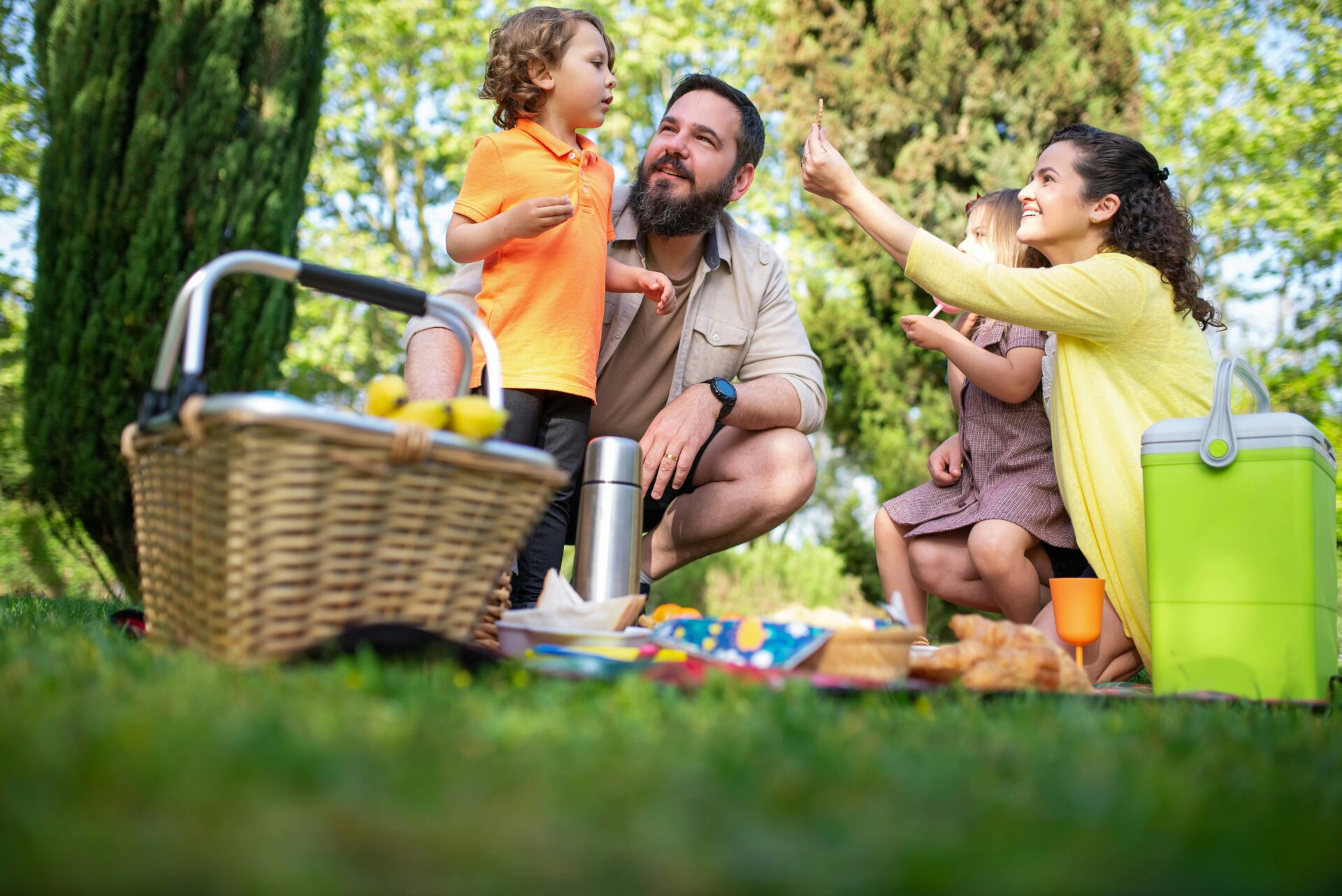
This month we continue our preparations for Thank a First Responder Day (TAFRD) coming up on Wednesday 11 June 2025. It is a busy time for Fortem Australia as we get ready to honour the amazing men and women who save lives and protect our communities. This day is all about thanking the first responders across the country. While they are ordinary people, with families, friends, commitments, and homes to go to at the end of their working day, they do an extraordinary job protecting our communities and keeping us safe, all while often receiving little thanks for what they do. TAFRD is all about gratitude… but what does that even mean?
Gratitude is that feeling we get when we’re thankful for a person, a situation or something in our lives. Practising gratitude is both active and deliberate… a conscious way to help us notice the positive parts of our lives. Research has shown that there is a strong link between gratitude and wellbeing. Gratitude gives us a mood boost, helps us to sleep better and makes us feel happier and more optimistic. It also gives us a stronger sense of connection with our family, friends, work mates and communities, and makes our relationships stronger. Practising gratitude is also linked with lower levels of anger, depression, illness and distress.
The good news is that practicing gratitude isn’t difficult; just set aside a few minutes each day to focus on some good things that have happened or are about to happen, and who you’re thankful for. To make this a deliberate and conscious practice helps to really embed this into your life and you will find that over time is gets easier to do.
Here are some ways to incorporate gratitude practices:
Give thanks (just like TAFRD)

Gratitude is all about noticing and acknowledging people, places, things, or gifts that bring joy, or comfort to our lives. You can show your appreciation by thanking a person directly, or you might spend a moment simply mentally appreciating them. Showing your gratitude for those around you can help improve the quality and satisfaction of your relationships, especially to those closest to you. This might look like thanking your partner for a small, kind things they said or did, thanking someone who helped you, or texting a friend to thank them for being in your life. Even small things matter when it comes to gratitude. Thanking someone gives a boost of happiness to both the giver and the receiver
Observe
Take a second to really think about how you are feeling right now. What sensations can you feel in your body, can you feel your clothes against your skin, your bottom on the chair, or a light breeze from an open window? As well as touch, think about the other senses, what can you see, hear, taste and smell right now? When thinking about how you feel right now in this moment, are there people, places or things that you find soothing, or helpful during hard moments that you can reflect on? Essentially, we are observing this moment right now and all that is good, soothing and helpful for you. This is a very similar practice to mindfulness.
Regularly write down what you are grateful for
Journalling what we are grateful for has been found to be very helpful, but many people struggle to know where to start. You might just think about one thing you are grateful for at the end of each day, you could a gratitude jar where you can place notes of the things you’re grateful for each day or each week or you can do a more in-depth journal with some question prompts:

What’s a simple pleasure in life that you are grateful for?
What moment from today would you want to have again?
Who are you grateful for today?
What are you looking forward to?
As you write you might come up with more ideas of things that bring you gratitude. The added benefit is that you can look back on these observations which can help when you are struggling to notice the positives.
Savour moments
Give yourself time to really enjoy good moments when they come. When we are struggling in life, our brain can automatically see a positive moment as just a precursor to a crap one, almost like we can’t trust these good feelings. Instead, try to focus in on the moment and allow yourself to truly enjoy those good feelings, and being thankful they exist.
Use rituals or traditions as a reminder to show gratitude

Regularly pausing for a moment to appreciate something can help you develop a greater sense of gratitude. To make this more regular you might pair your moments of gratitude with a task you already do, like your morning coffee – as you sip the lovely warm drink, think about how it tastes and feels in your body and remind yourself to think of one thing you are thankful for. You can even talk about gratitude over a meal. When you share a meal with your family, friends or work mates, ask questions about what each person is feeling grateful for e.g. what was the best part of your day? What was a good but unexpected thing that happened? What are you looking forward to tomorrow? This is a wonderful way to incorporate gratitude into your own family rituals and introduce the concept to children.
Apps
There are lots of free apps available that remind you to focus on gratitude, and help you keep an easy journal on your device. Just search on Google for a gratitude app that you like.
Gratitude is not toxic positivity
While gratitude has been shown to have some amazing health and wellbeing benefits, there are situations where it may not be warranted. For example, if you are so focused on feeling thankful for a partner or friend, you might overlook certain behaviours that are harmful to your wellbeing. You might also feel pressure to show gratitude at certain times of the year despite how you are feeling inside (think, Christmas lunch with in-laws!). When there is pressure to always be really grateful but internally you are struggling, this can start to feel like a chore and not a positive practice in your life. At these times, noticing and accepting that things aren’t going so well can be helpful, along with the sharing your feelings with others.
Putting some effort and awareness into gratitude helps us to feel positive emotions more often. Over time, this practice can become a new healthy habit that makes our health, relationship and lives better. While the big things in life are the most obvious gratitude targets, it’s also important to notice the small things. Finding gratitude during hard times is a powerful way to remind yourself that there are always good parts to your life. Practising gratitude is quick, easy and free, so there’s nothing to lose by giving it a go – you can even thank a first responder today!
Contact us
Are you… A first responder who is struggling? Reach out to our team for specialised help and support.
For more information on who can access our services, visit ‘who we serve’ on our website at https://fortemaustralia.org.au/who-we-serve
To speak with a professional at Fortem Australia, please contact us by email or phone. psychology@fortemaustralia.org.au
